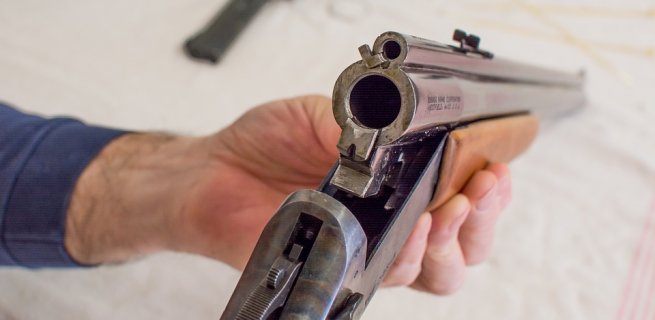Twenty years ago, sixteen-year-old Japanese exchange student Yoshihiro Hattori was enjoying the different culture in Louisiana, USA.
Together with his exchange buddy, he was dressed in a tuxedo and on his way to a Halloween party.
But rather than attend the party, they accidentally walked into the front yard of the wrong house.
According to the occupants, Hattori was walking very strangely and caused them to feel alarmed.
On his wife’s instruction, the home-owner Rodney Peairs grabbed a gun and yelled ‘freeze’.
Evidently misunderstanding, Hattori allegedly continued to move closer.
Peairs again yelled out “stop”, but then shot the teen when he allegedly continued forward.
Forensic evidence later showed that although Peairs claimed the teen was moving rapidly, Hattori was either moving very slowly or not at all when he was shot.
Tragically, the youngster died before getting to hospital.
Peairs was charged with murder but later found “not guilty” by a jury.
Despite the fact that Hattori was only around 60kg while Peairs was a solidly built man, the home-owner’s actions were found to be within the law.
In Louisiana, a person may use lethal force on someone they believe is an intruder with criminal intent.
The controversial verdict ensured that the case received worldwide attention for years to come.
While the shooting did heighten debate around gun laws and the right to shoot an intruder, the law didn’t change – twenty years on, the law remains the same in Louisiana.
In fact, the ‘Castle doctrine’ still exists in many of the United States – which is the idea that a person can use lethal force to protect their home and family.
This has lead to the tragic deaths of numerous intruders and subsequent acquittals of those charged with their murder.
Although the tragic event occurred in America, the same moral dilemma could arise anywhere around the world – which brings us to the questions:
Is it murder if you kill in self defence in Australia?
And, what constitutes self defence here?
The law in Australia?
Self-defence is a complete defence throughout Australia.
This means that if you raise self-defence in a case, the prosecution must then prove beyond reasonable doubt that you did not act in self-defence – otherwise, you must be found ‘not guilty’.
For example, if you were charged with assault and were able to raise some evidence that you were defending yourself, you would have to be found not-guilty unless the other side could prove that you weren’t acting in self-defence.
Self-defence is much wider than you might expect, as it allows you to claim the defence even if you weren’t just defending yourself.
Under section 418(2) the NSW Crimes Act 1900, a person is not guilty of an offence if they were:
1. Defending themselves or someone else
2. Preventing or ending unlawful deprivation of liberty of themselves or someone else
3. Defending their property from being taken unlawfully, destroyed, damaged or interfered with
4. Preventing criminal trespass to any land or to remove a person committing criminal trespass
However, self-defence is not available if the person has either intentionally or recklessly caused death for above reasons three and four.
And even if you are protecting yourself or someone else, the actions you take must a reasonable response to the threat as you perceive it.
This means that:
- You must believe that there is a threat,
- Your belief must be on reasonable grounds, and
- Your response must be reasonable to that threat.
This means that honest and reasonable belief amount to self-defence even if the belief is mistaken.
Excessive force:
Using excessive force can be used as a partial defence to murder– in some circumstances, reducing a charge of murder to manslaughter.
Excessive self-defence inflicting death occurs when:
- You believe that your conduct is necessary to defend yourself or another person (or prevent unlawful deprivation of liberty), but
- Your conduct is not reasonable in the circumstances
This may apply where you believe that your conduct was necessary to protect yourself or another person, but that conduct was not a reasonable response to the situation.
Self-defence will not be available as a complete defence if the fact that you were affected by drugs or alcohol led you to conclude that your conduct was reasonable, although it may downgrade a murder charge to manslaughter.
If you or a loved-one is facing charges for assault, murder or another ‘offence against the person’ and believe that self-defence may be available, seek legal advice from a suitably experienced criminal defence lawyer as soon as possible.
When looking for a lawyer, it may be a good idea to read through their lawyer profiles to ensure that they have the experience to properly assist you.
The reality is that a good defence can mean the difference between, on the one hand, getting your case dropped at an early stage or thrown out of court or, on the other hand, being found guilty and receiving a harsh sentence.












Intruders are invaden the USA home either Satan or aliens for others
He is the one who kill people in the mountains USA
Do not go there he is sending meteoro from the cloud
Animals who kill people and animals he doesn’t have soul he is a killer.
We have to do a weapon laser plasma right away to defend our self.
Otherwise he finish all.